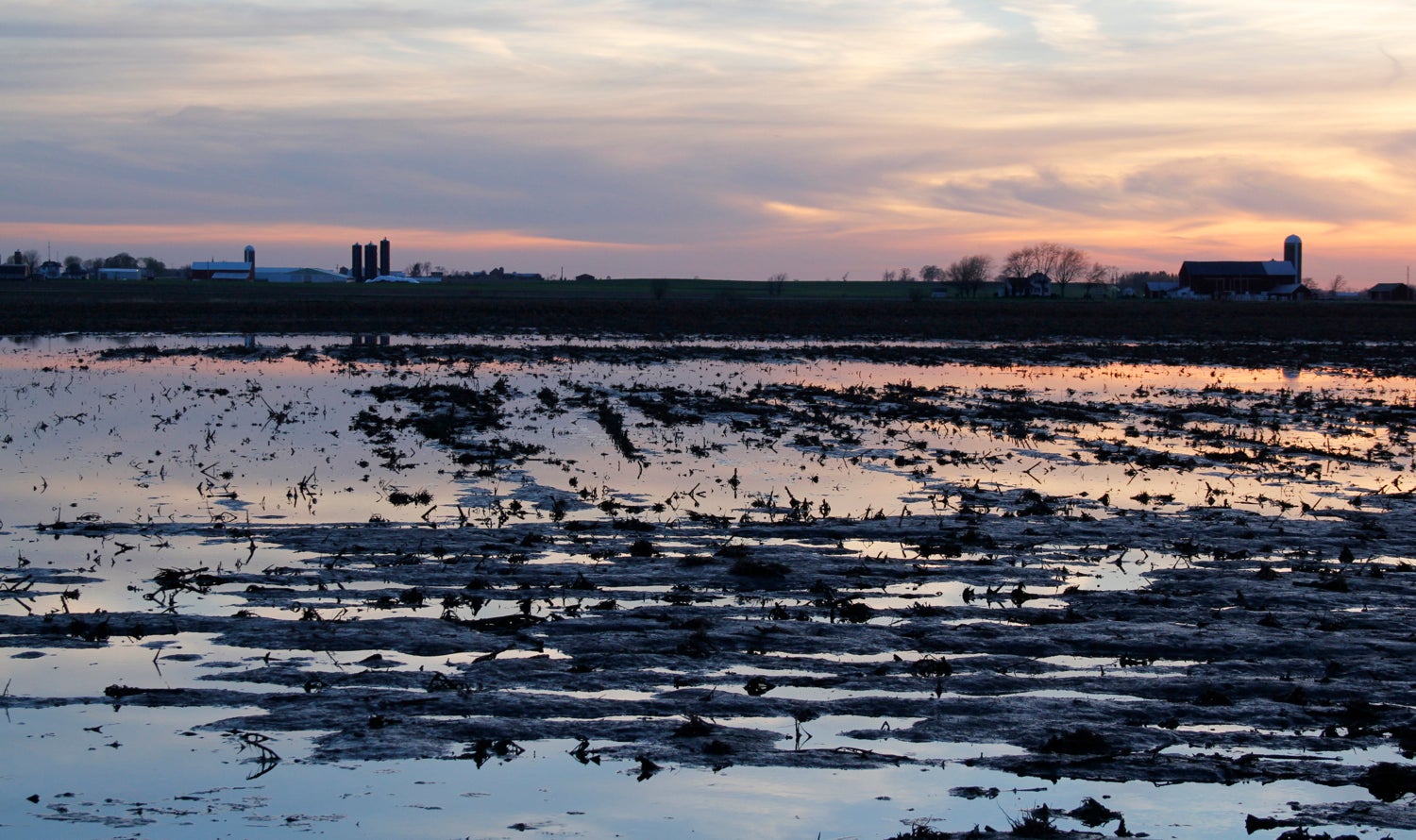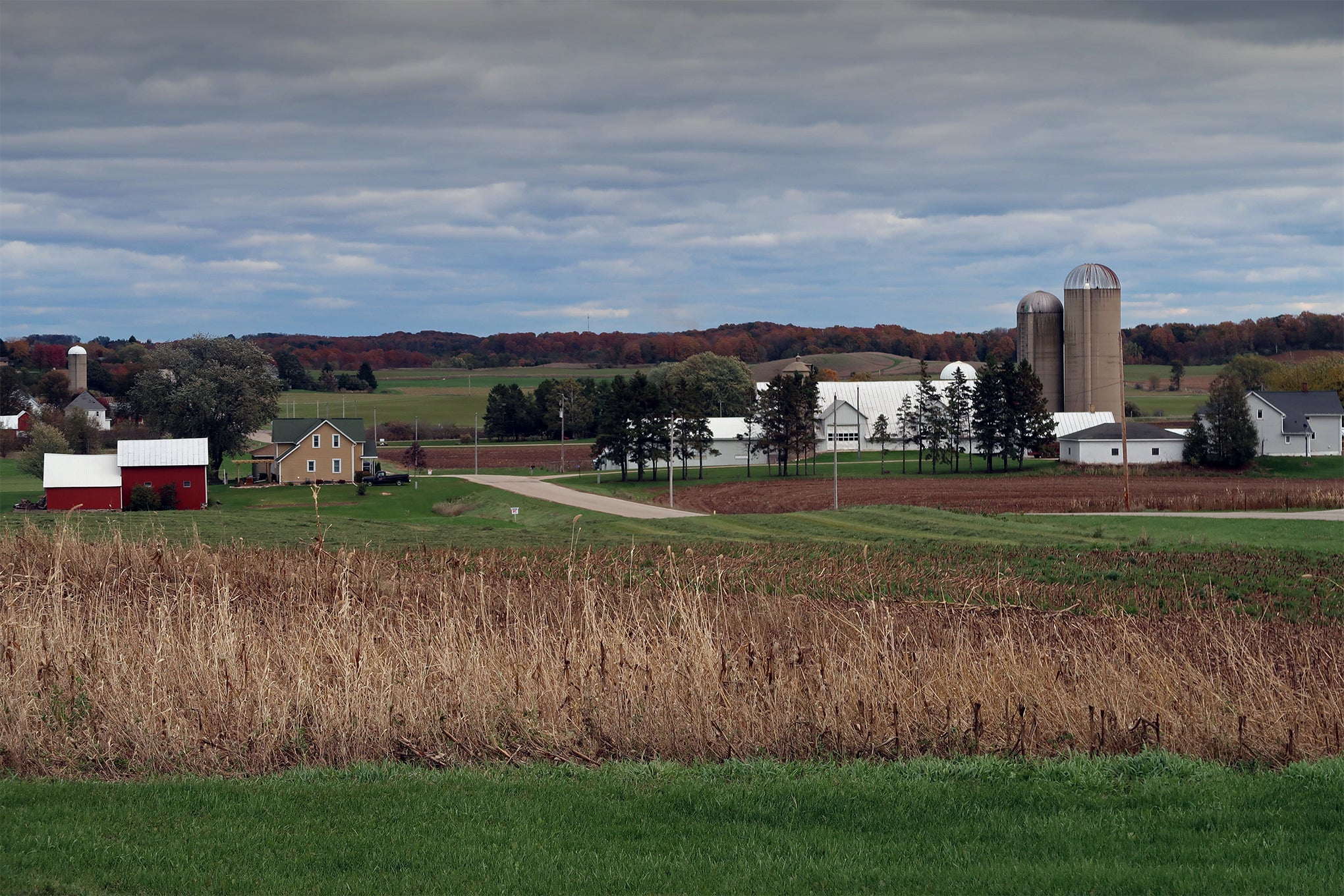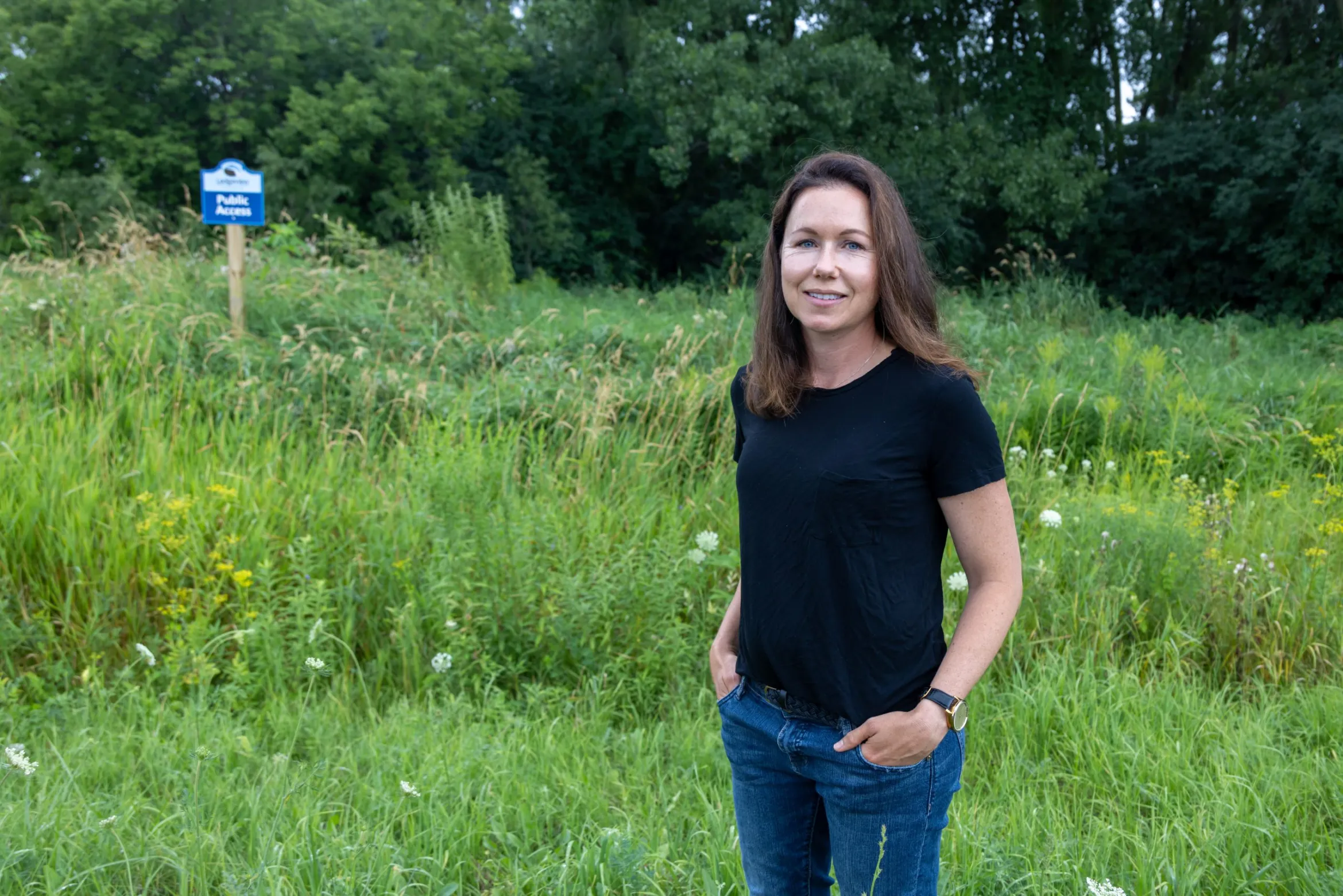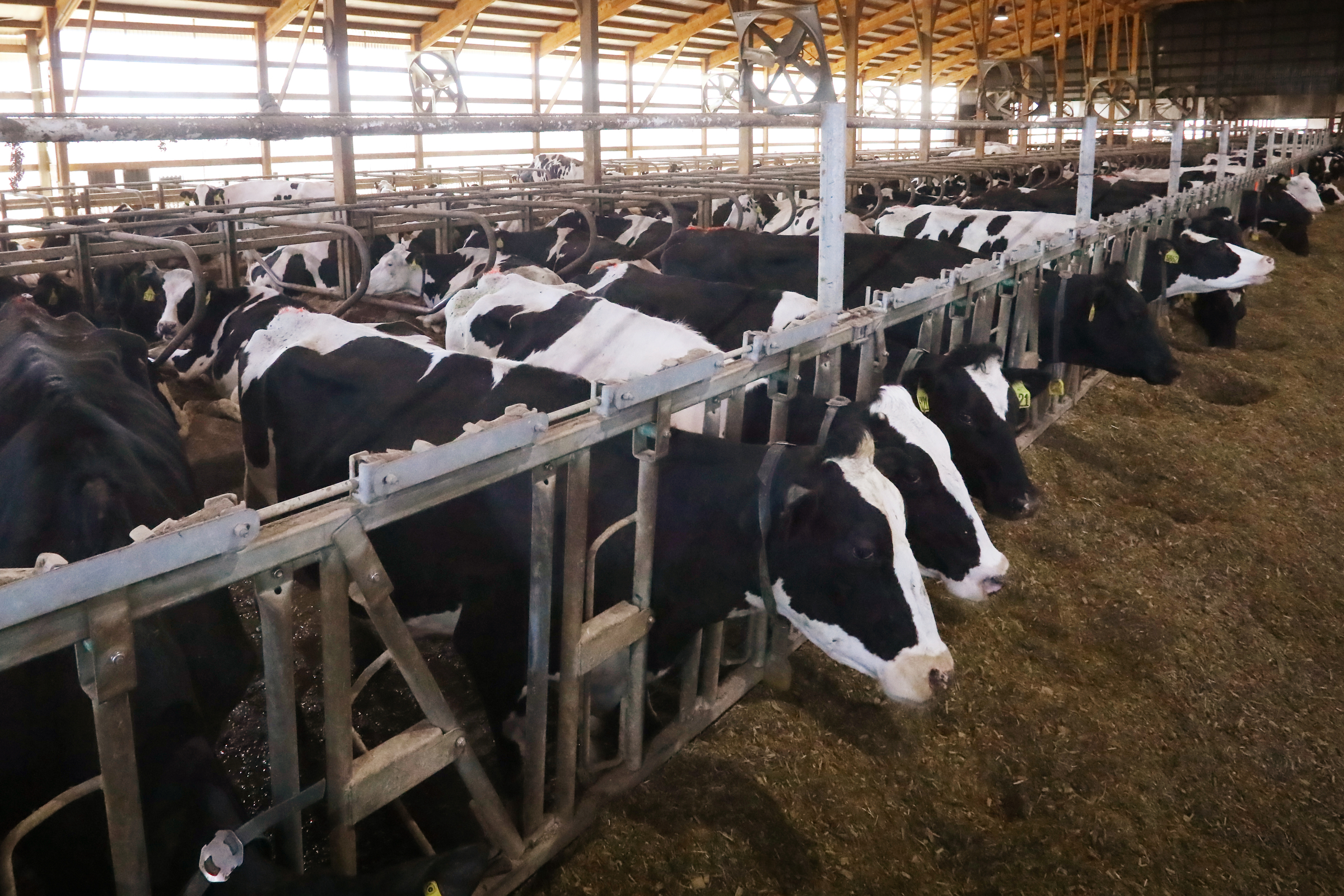The public gets its chance to speak out tonight on the future of a big dairy farm in Kewaunee County. Whatever the administrative law judge hearing the case this week decides — could set a precedent in Wisconsin for large livestock farms known as CAFOs.
There are 4,000 cows at Kinnard Farms, and the owners want to expand that operation to 6,000 cows.
Investigative reporter Kate Golden is following the story. At her office at the Wisconsin Center for Investigative Journalism, she told WPR that neighbors of the farm have brought the case, not because they want to stop the farm from expanding, but rather because want Kinnard Farms to adhere to what they call a better, more enforceable state permit.
Stay informed on the latest news
Sign up for WPR’s email newsletter.
Kate Golden: One of the things they want is a groundwater monitoring system that will tell them when or if water quality standards are violated. They also want a cap on the number of cows on the farm. And the [Department of Natural Resources] says it actually doesn’t have the authority to limit the number of cows at any CAFO at any farm in Wisconsin.
Terry Bell: So they don’t regulate numbers, in other words.
KG: No, according to the DNR, you can have as many cows as you want, as long as you can take care of the manure. That’s what they regulate with the Nutrient Management Plan. But the number of cows is not something they have control over.
TB: But they do want to expand this (farm) by 55 percent more cattle. That’s quite a lot.
KG: Yeah, it’s going to be a huge CAFO.
TB: There’s been pollution in this region already, hasn’t there been?
KG: That’s right. So, the petitioners in this case have e coli in their wells. They’ve had bacteria, and that’s one of the things they’re most worried about.
TB: This part of Wisconsin, northeastern Wisconsin, has seen a lot of problems with contamination from large farms into drinking water.
KG: This part of Wisconsin has some of the most concentrated livestock farming in the state. It also has some of the most vulnerable groundwater. It’s an area with very thin soils over fractured karst bedrock. So the water doesn’t get absorbed by the soil like it normally would. It gets to these cracks in the rock, and it just goes straight down. So that means the groundwater can get contaminated much more easily, and it has. In the Town of Lincoln, next to where this farm is located, fifty percent of the wells have been contaminated with either coliform bacteria, or nitrates.
TB: The Department of Natural Resources, as I understand it, has never turned down a permit for a large farm to expand.
KG: That’s right.
TB: What is it that the court has to decide this week?
KG: The court [administrative law judge] will be deciding, among other things, whether the DNR should be imposing a groundwater monitoring system in this case, and whether the DNR should be capping the number of cows. Basically, whether the DNR wrote a permit that’s going to be sufficiently protective of the environment — whether it’s really going to protect the state’s waters.
The public portion of the hearing is tonight, Wednesday, at Green Bay City Hall from 5:30-7:00.
You can read more of Kate’s reporting and see data on how Wisconsin dairying has grown at wisconsinwatch.org
Wisconsin Public Radio, © Copyright 2024, Board of Regents of the University of Wisconsin System and Wisconsin Educational Communications Board.







